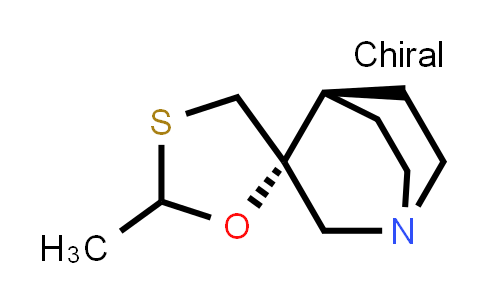Introduction of 107220-28-0 :
Cevimeline hydrochloride (AF102B hydrochloride) is a quinuclidine derivative of acetylcholine and a selective and orally active muscarinic M1 and M3 receptor agonist. Cevimeline hydrochloride stimulates secretion by the salivary glands and can be used as a sialogogue for xerostomia[1][2][3][4]. Cevimeline hydrochloride can cross the blood-brain barrier (BBB)[5]. IC50 & Target: Muscarinic M1 and M3 receptor[1] In Vitro: In digested parotid cells, Cevimeline (0.1-100 μM) increases the intracellular Ca2+ concentration[1]. In Vivo: Cevimeline (0.008-0.016 mg/kg; intraperitoneal injection; male Wistar rats) treatment shows slowly increasing and lasting salivation, and increased blood flow increment in the parotid gland and pressor response. Cevimeline inhibits angiotensin II-induced water intake and neuronal activity in the subfornical organ at 0.016 mg/kg[1].
